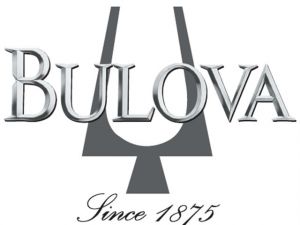Accutron: Difference between revisions
No edit summary |
|||
| (8 intermediate revisions by 2 users not shown) | |||
| Line 1: | Line 1: | ||
Accutron: First Electronic Watch | [[File:Bulova logo.jpg|thumb]] | ||
=='''Accutron: First Electronic Watch'''== | |||
==History== | |||
The *[[Bulova]] Accutron wasn't the first electric watch. That honor goes to [[Hamilton]]. However, the Accutron is the first electronic watch, utilizing the brand new technology of transistors. It is also the first reliable battery powered watch, with many examples still running perfectly from the 1960s. These electric watches use a tuning fork to regulate the time. They make a delightful humming sound and have a mesmerizing constant sweep to their seconds hands. The Accutron was a significant achievement of American watchmaking. It solidified Bulova as a high quality and popular brand, giving the company financial strength that has allowed it to exist to this day, despite a decimation in most other areas of American manufacturing. | |||
In 1952, Harry Henshel of Bulova was looking for a way to increase the accuracy of his watches. He hired Swiss electrical engineer Max Hetzel. Hetzel developed the Accutron movement, with the first prototypes being constructed in 1955 and the first watches released in 1960. | In 1952, Harry Henshel of [[Bulova]] was looking for a way to increase the accuracy of his watches. He hired Swiss electrical engineer Max Hetzel. Hetzel developed the Accutron movement, with the first prototypes being constructed in 1955 and the first watches released in 1960. | ||
Movement | ==Movement== | ||
The Accutron 214 movement was truly a breakthrough in time keeping. Rather than using a conventional balance wheel and mainspring, power is transferred by a battery to the coils of a tuning fork. Attached to the tuning fork are two ultra-thin jeweled pawl fingers that rotate an index wheel with 360 impossibly tiny teeth. The index wheel is connected to a gear train that runs the watch. While all of this was very high tech, the Accutron movement is no plastic throwaway, It does use some glass-filled diallyl phthalate as an insulating material, but the plates are constructed the old-fashioned way, with beautifully machined brass and jeweled pivots. This gem-like quality gives the movement durability and reliability that was lacking in the competition. | The Accutron 214 movement was truly a breakthrough in time keeping. Rather than using a conventional balance wheel and mainspring, power is transferred by a battery to the coils of a tuning fork. Attached to the tuning fork are two ultra-thin jeweled pawl fingers that rotate an index wheel with 360 impossibly tiny teeth. The index wheel is connected to a gear train that runs the watch. While all of this was very high tech, the Accutron movement is no plastic throwaway, It does use some glass-filled diallyl phthalate as an insulating material, but the plates are constructed the old-fashioned way, with beautifully machined brass and jeweled pivots. This gem-like quality gives the movement durability and reliability that was lacking in the competition. | ||
Introduction | ==Introduction== | ||
The Accutron was introduced in 1960 with great fanfare. The advertising firm of Interpublic, run by real mad man Jack Tinker, came up with the name and a series of ads that proclaimed the Accutron as the first new timekeeping device since the mechanical watch was invented and talked about it as a whole new concept, why you should wear an Accutron instead of a watch. Bulova used print and television advertising, with a notable commercial in which a clockmaker adjusts a tower clock in a village using his Accutron. Accuracy was guaranteed to within a minute a month, easily achieving a rating that was celebrated as "Chronometer" by the Swiss and suddenly made all other timekeepers seem quaint and old-fashioned by comparison. The new watch captivated the public, with its modern-cool image, humming sound and stunning designs. | The Accutron was introduced in 1960 with great fanfare. The advertising firm of Interpublic, run by real mad man Jack Tinker, came up with the name and a series of ads that proclaimed the Accutron as the first new timekeeping device since the mechanical watch was invented and talked about it as a whole new concept, why you should wear an Accutron instead of a watch. Bulova used print and television advertising, with a notable commercial in which a clockmaker adjusts a tower clock in a village using his Accutron. Accuracy was guaranteed to within a minute a month, easily achieving a rating that was celebrated as "Chronometer" by the Swiss and suddenly made all other timekeepers seem quaint and old-fashioned by comparison. The new watch captivated the public, with its modern-cool image, humming sound and stunning designs. | ||
Spaceview | *Spaceview | ||
Part of the rollout of the new watch included supplying dealers with special demonstrator models to show the new technology to the public. These watches were made without a dial. The markers were printed dots on the crystal and the white luminous hands provided contrast. These see-through demonstrators proved so popular that customers were begging dealers to sell their only one. To provide customer satisfaction, dealers began converting their standard Accutrons to this design. Bulova responded to this demand by creating the Spaceview as its own model. | Part of the rollout of the new watch included supplying dealers with special demonstrator models to show the new technology to the public. These watches were made without a dial. The markers were printed dots on the crystal and the white luminous hands provided contrast. These see-through demonstrators proved so popular that customers were begging dealers to sell their only one. To provide customer satisfaction, dealers began converting their standard Accutrons to this design. Bulova responded to this demand by creating the [[Spaceview]] as its own model. | ||
Astronaut | *Astronaut | ||
Part of the Accutron plan was to develop high grade watches for the military. Bulova Chairman Omar Bradley was one of the most famous and well-respected generals of WWII and was the chairman of the Joint Chiefs of Staff during the Korean War. The Astronaut model was developed in 1962 as a GMT watch for pilots, with the hope of securing a contract for the newly-created NASA Space program. | Part of the Accutron plan was to develop high grade watches for the military. Bulova Chairman Omar Bradley was one of the most famous and well-respected generals of WWII and was the chairman of the Joint Chiefs of Staff during the Korean War. The [[Astronaut]] model was developed in 1962 as a GMT watch for pilots, with the hope of securing a contract for the newly-created NASA Space program. | ||
Railroad | *Railroad | ||
In some ways the Railroad watch was the first "tool watch." The need for timepiece accuracy was crucial to keep the trains synchronized and ensure that no two trains would be in the same place at the same time. The Accuron Railroad Approved watch provided these lines with a truly accurate timepiece and was in many ways the "last word" in train watches. | In some ways the [[Railroad]] watch was the first "tool watch." The need for timepiece accuracy was crucial to keep the trains synchronized and ensure that no two trains would be in the same place at the same time. The Accuron Railroad Approved watch provided these lines with a truly accurate timepiece and was in many ways the "last word" in train watches. | ||
Models | ==Models== | ||
* [[Bulova Accutron Astronaut]] | |||
*[[Bulova Accutron 214|214]] | |||
*218 | |||
*219 | |||
*224 | |||
*2210 | |||
==Links== | |||
[[Bulova]] | |||
[[Caravelle]] | |||
[[USA]] | |||
Latest revision as of 22:19, 30 January 2021

Accutron: First Electronic Watch
History
The *Bulova Accutron wasn't the first electric watch. That honor goes to Hamilton. However, the Accutron is the first electronic watch, utilizing the brand new technology of transistors. It is also the first reliable battery powered watch, with many examples still running perfectly from the 1960s. These electric watches use a tuning fork to regulate the time. They make a delightful humming sound and have a mesmerizing constant sweep to their seconds hands. The Accutron was a significant achievement of American watchmaking. It solidified Bulova as a high quality and popular brand, giving the company financial strength that has allowed it to exist to this day, despite a decimation in most other areas of American manufacturing.
In 1952, Harry Henshel of Bulova was looking for a way to increase the accuracy of his watches. He hired Swiss electrical engineer Max Hetzel. Hetzel developed the Accutron movement, with the first prototypes being constructed in 1955 and the first watches released in 1960.
Movement
The Accutron 214 movement was truly a breakthrough in time keeping. Rather than using a conventional balance wheel and mainspring, power is transferred by a battery to the coils of a tuning fork. Attached to the tuning fork are two ultra-thin jeweled pawl fingers that rotate an index wheel with 360 impossibly tiny teeth. The index wheel is connected to a gear train that runs the watch. While all of this was very high tech, the Accutron movement is no plastic throwaway, It does use some glass-filled diallyl phthalate as an insulating material, but the plates are constructed the old-fashioned way, with beautifully machined brass and jeweled pivots. This gem-like quality gives the movement durability and reliability that was lacking in the competition.
Introduction
The Accutron was introduced in 1960 with great fanfare. The advertising firm of Interpublic, run by real mad man Jack Tinker, came up with the name and a series of ads that proclaimed the Accutron as the first new timekeeping device since the mechanical watch was invented and talked about it as a whole new concept, why you should wear an Accutron instead of a watch. Bulova used print and television advertising, with a notable commercial in which a clockmaker adjusts a tower clock in a village using his Accutron. Accuracy was guaranteed to within a minute a month, easily achieving a rating that was celebrated as "Chronometer" by the Swiss and suddenly made all other timekeepers seem quaint and old-fashioned by comparison. The new watch captivated the public, with its modern-cool image, humming sound and stunning designs.
- Spaceview
Part of the rollout of the new watch included supplying dealers with special demonstrator models to show the new technology to the public. These watches were made without a dial. The markers were printed dots on the crystal and the white luminous hands provided contrast. These see-through demonstrators proved so popular that customers were begging dealers to sell their only one. To provide customer satisfaction, dealers began converting their standard Accutrons to this design. Bulova responded to this demand by creating the Spaceview as its own model.
- Astronaut
Part of the Accutron plan was to develop high grade watches for the military. Bulova Chairman Omar Bradley was one of the most famous and well-respected generals of WWII and was the chairman of the Joint Chiefs of Staff during the Korean War. The Astronaut model was developed in 1962 as a GMT watch for pilots, with the hope of securing a contract for the newly-created NASA Space program.
- Railroad
In some ways the Railroad watch was the first "tool watch." The need for timepiece accuracy was crucial to keep the trains synchronized and ensure that no two trains would be in the same place at the same time. The Accuron Railroad Approved watch provided these lines with a truly accurate timepiece and was in many ways the "last word" in train watches.
Models
- 218
- 219
- 224
- 2210
